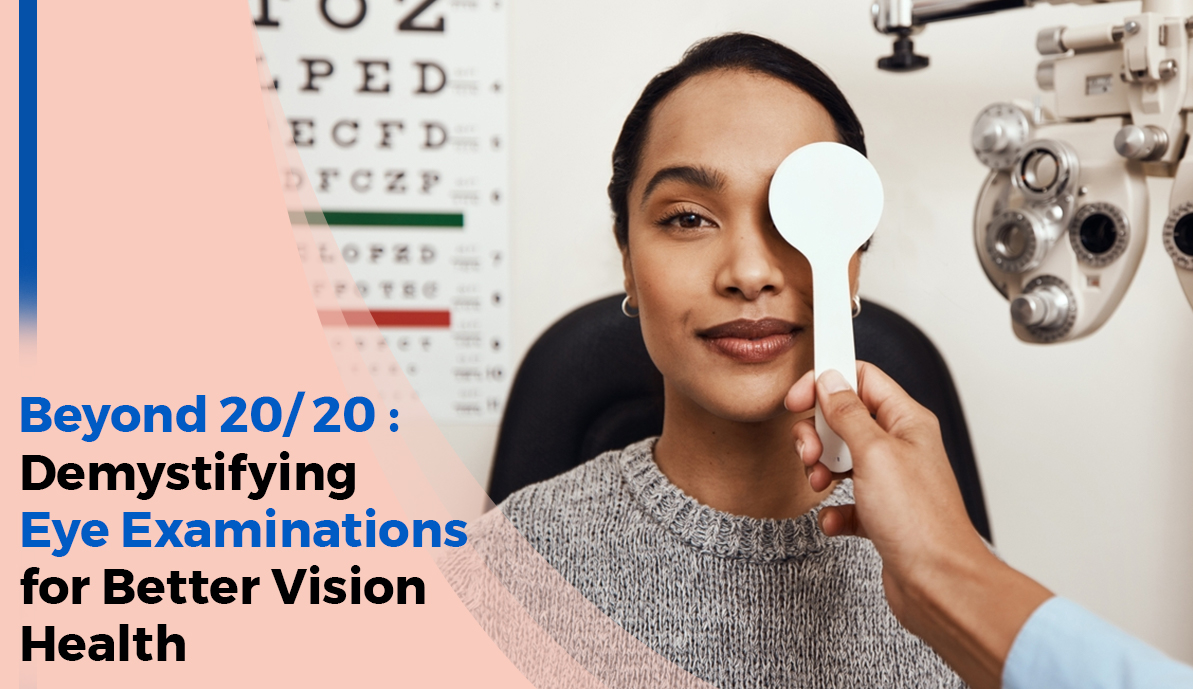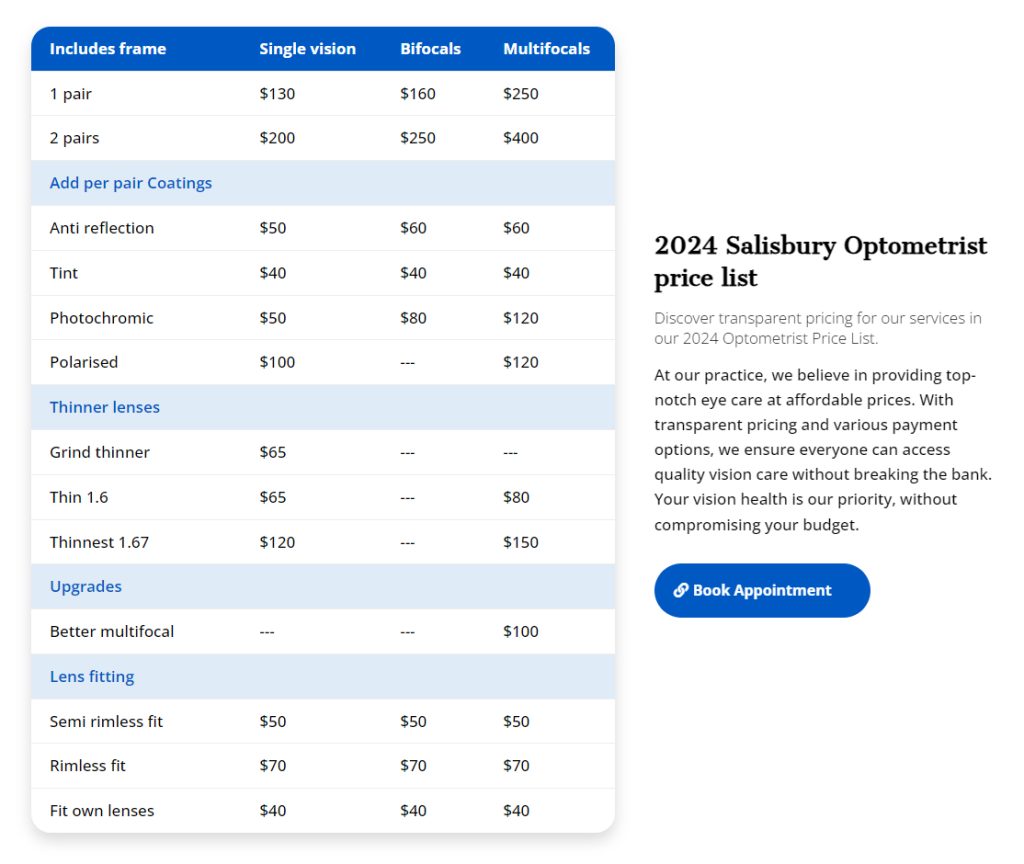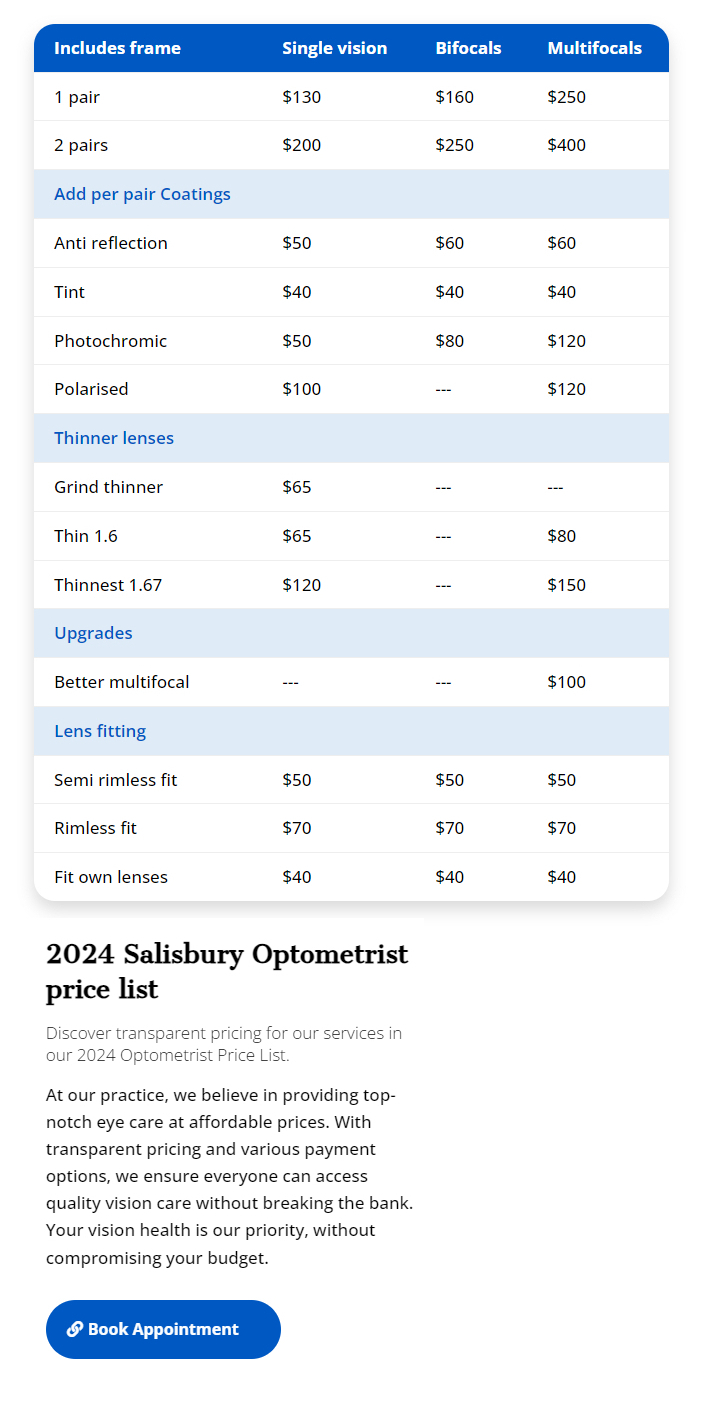Eye examinations are underrated; people seldom understand that seeing well is way more than convenience. Eye examinations could be life-saving as good vision is essential for a good life. Although we understand the truth, we don’t make efforts to schedule appointments with optometrists and get an examination. There are different healthcare services and expert care to treat your condition and monitor your vision changes. Eye examinations do not improve the quality of life. It also helps in learning about self-care and lifestyle changes. Read the article to know the importance of eye examination, even if you believe your eyes are alright.
We Have Decided to Debunk Some Common Myths Here:
Eye Examinations Are for People with Eyesight Problems:
Even if you have good eye vision, you must take a comprehensive examination once every year. Eye exams help in identifying eye disorders at early stages and other major health problems! Glaucoma, macular degeneration, diabetes and hypertension are some of the silent enemies that can be traced through eye examinations. You could save a lot of medical costs and risks of developing irreversible symptoms.
Eye Exams Are Meant for People Above 40 Years:
You are under the age of 40 years and don’t have any history of eye problems, but still getting your eyes tested every two years help you in preventing major eye disorders like cataract, dry eye syndrome, refractive errors and others. The optometrist conducts eye exams to evaluate how well you see objects at various distances. They estimate the eyelid’s health and functioning, fluid pressure, coordination of muscles and colour testing as they help them to determine several eye disorders earlier.
Eye Exams Are Painful:
Eye exams are essential to identify any potential eye disorder or overall health. The provider will use special equipment, instruments and lights to look in depth at your eyes. The tests don’t hurt but could be uncomfortable. However, arrange regular eye exam appointments as it helps in monitoring the transitions in your vision and detects eye problems to ensure they are healthy.
It Is not Necessary to Wear Sunglasses After Eye Examinations:
During an eye assessment, your pupil is dilated, after which the doctor performs the examination of its internal structure. You should wear sunglass after the examination is over to prevent excess sunlight from entering your eyes, as it might cause strain to your eyes.
You Don’t Need Comprehensive Eye Examinations for Minor Symptoms:
The patients must comprehend the symptoms are not minor in medical terms. For instance, headaches, blurry vision, light sensitivity, neck and shoulder pain, and burning and itchy eyes are not considered mild symptoms by medical professionals. Digital eye strain is dominating the globe, and taking the advice of medical experts and doing simple exercises can enhance overall eye health. However, taking a comprehensive eye exam every year helps the doctor to understand your condition and plan treatment accordingly.
How Common Are Refractive Errors?
The refractive errors are related to the focusing ability of the eyes; therefore, you might feel difficulty seeing clearly if your eyes can’t focus properly. If you are annoyed with blurred vision, you must consider taking an eye examination. Consider different types of refractive errors:
Astigmatism- distorted vision at all distances. The condition occurs as your lens is curved in one direction than the other, and the image is strongly focused in one direction. Doctors don’t list any reasons for the condition, and there are no pre-defined causes for the condition. Therefore anyone can develop astigmatism at any stage of their lives. However, the condition is generally found to be hereditary and not caused by any health conditions.
A small degree of astigmatism doesn’t affect the quality of your life, but significant astigmatism makes it hard for you to see clearly and affects your daily functioning. Considerable patients require only glasses or contact lenses, but some might need vision correction surgery and enhancement procedure if they are older from the condition. Therefore visiting an eye clinic as soon as you notice any modification in your vision is important before the condition becomes noticeably worse or blurry.
You get to experience the symptoms more likely at night or when you look at lights or when it’s raining.
Long-sightedness- you experience trouble focusing on close objects, and they appear blurry. The condition generally occurs for people with shorter eyeballs; for them, the cornea would be too flat and can’t become round enough to bring the light into focus on the retina. Have you ever met people whining about using reading glasses? People working on a computer or when they read a book, blurriness becomes more noticeable for them.
Younger patients with the condition don’t suffer too much. Hence they are prescribed with correcting glasses or lenses. However, older patients would require much effort to focus properly. However, your eye doctor might suggest further diagnosis as the state could be a side effect of diabetes, small eye syndrome or the growth of cancerous cells around the eye and problems in the blood vessels of the retina.
Presbyopia- you have trouble seeing closer objects, and the condition is common among 40 years or older. Short-sightedness- you have trouble focusing far away objects, and they appear blurry. When you allow the doctors to examine the severity of your condition, you can reduce the impact of the treatment. Doctors might not suggest you any treatment if the condition is negligible. However, they might propose corrective lenses, such as glasses or contact lenses, to help your eyes focus on distant objects or laser surgeries to alter your eye shape. These surgeries are prescribed for adults only. They might also suggest you artificial lens implants if your condition is severe, and they help you to focus properly.
What An Optometrist Wants You to Know:
You can see well with your glasses or contact lenses; you think you don’t need correction yet. You believe you have got no eye problems. But several eye conditions out there are silent and have merely any warning signs until you lose your vision. Thus the optometrist suggests getting your eyes checked once every year so that you can prevent problems from occurring.
Optometrists suggest going beyond 20/20- why? Even if you have been diagnosed and you are 20/20, it means that your central vision is good. There could be harming parts of the inner eye due to glaucoma or diabetic retinopathy, which develops over the years without affecting your central vision. Still, you must diagnose your side vision, night vision, and colour vision for impairment.
If your doctor suspects cataracts, they might suggest you stop wearing contact lenses if you are a contact lens wearer. You might have to stop wearing contact lenses for a period of time before the cataract evaluation, as they can alter the shape of the cornea and throw off the measurements required for cataract surgery. Physicians advise patients with cataract suspect, not to use soft lenses for 1-2 weeks prior to the visit and hard contacts for a longer time.
If you discover cataracts after the diagnosis, don’t wait till your vision is affected. Optometrists suggest getting rid of cataracts by surgery if that is the right solution for you.
There are other associated eye conditions such as squint, lazy eye, glaucoma, cataracts, retinal detachment, short-sightedness and significant others.
Conclusion:
A comprehensive eye examination helps doctors to recommend eye exercises, identify eye disorders, optimize your eyewear or plan treatment for you. Further, eye exams allow the doctors to understand your habits and routine so that it further enhances their way of treating the conditions. Therefore eye examination performed by skilled doctors is the holistic approach to dealing with your eye problems and treating them effortlessly.




0 Comments